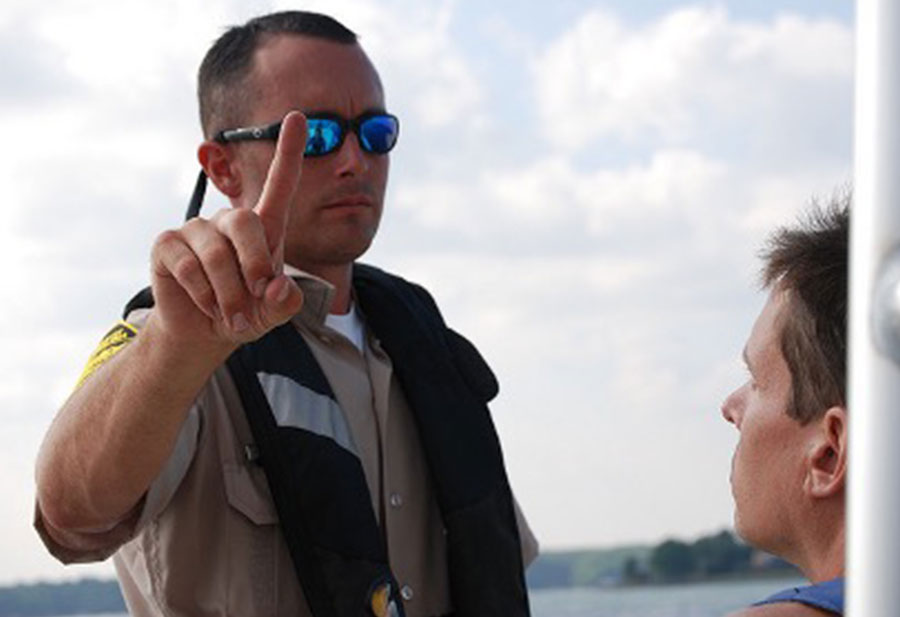Reduce Your Risks on the Water With These Boating Safety Tips from Santee Cooper

It’s that time of year again — summer is revving up, and so are our boats! If you are a boating enthusiast, South Carolina is the place to be, offering abundant access to open waterways, lakes, rivers, and the ocean. Open water often comes with more risks, so it’s up to you as a good captain to look out for yourself, your crew, fellow boaters and water enthusiasts, and of course, your boat.
As stewards of the Santee Cooper Lakes, our team makes maintaining lakes Marion and Moultrie, the state’s largest freshwater resource, a priority so you can enjoy them safely. Reduce your on-the-water risks this summer by following boating safety tips such as wearing life jackets, checking the weather, and avoiding an overloaded boat.
South Carolina Boat Safety Requirements
Before we get into the dos and don’ts for staying safer while boating — which include boating safety tips for families and older adults — let’s review the equipment you need to have on your boat for optimal safety on the water. The safety requirements for boats in South Carolina include:
-
For each person on board or being towed, a U.S. Coast Guard (USCG)-approved personal floatation device (PFD) that’s in good condition, of the proper size and within easy reach must be kept on the vessel.
-
For boats that are 16 feet or longer in size, a Type IV throwable floatation device such as a floating seat cushion or a life ring must be aboard.
-
Vessels of 16 feet or longer must also carry a sound-producing device such as a horn, whistle or bell that can capture other boaters’ attention in case of an emergency or in foggy conditions.
-
South Carolina law requires that all motorboats carry a USCG-approved fire extinguisher that’s in good working condition and readily accessible.
-
Most boats are required to have visual distress signals such as flares, smoke signals or distress flags aboard.
-
Boats operating at night must have proper navigation lights, including a masthead light and sidelights, so that the vessel is visible to other boaters in dark conditions.
In addition, a relatively new South Carolina boating law (enacted in 2023) requires that anyone born after July 1, 2007, take a boating safety course and earn a boating safety certificate before they can operate a boat or personal watercraft powered by a motor of 10 horsepower or higher. To qualify, the course must be approved by the South Carolina Department of Natural Resources. Online course options are available from providers like Boat Ed, the BoatUS Foundation and America’s Boating Club, while instructor-led courses are available throughout the state, including in Santee Cooper’s primary coverage areas.
Important Boating Safety Tips: The Don’ts
Staying safe while boating involves avoiding practices that endanger you, your passengers, and other boaters on the water, while also actively taking steps that reduce everyone’s risks on the water. Some of the top things you should AVOID when boating include:
-
DON’T drink and boat. Alcohol increases the chances of being in an accident. Boating under the influence is also punishable by fines and loss of boating privileges. If there are drinks aboard, designate a sober captain to drive the boat and stay aware. (There is no law against having an open container on a boat in South Carolina, but it is illegal to operate a watercraft while intoxicated on alcohol or drugs.)
-
DON’T overload the boat. Always know your boat’s capacity in both weight and the number of people. Exceeding boat limitations is unsafe and can put you at risk for negligent operations.
-
DON’T litter/throw trash in the water. Store trash securely and dispose of it later in a proper place. Trash can pose harm to wildlife and can corrupt sensitive ecosystems. Please respect the environment.
-
DON’T anchor in open channels. Anglers and leisure boaters should avoid anchoring in open channels. There are plenty of other areas for everyone to enjoy the lakes.
-
DON’T boat/ski near swimming areas. Stay a safe distance away from the shore when boating or pulling a skier, especially when near swimming areas. Accidents could be fatal. Swimmers should only swim in designated areas.
By breaking these rules, you risk endangering yourself and others — and it’s a surefire way to lose that cool boating license. So, stay mindful! If you’re not the captain, knowing this information can help you advise someone else or keep you out of a harmful situation.
Important Boating Safety Tips: The Dos
In addition to knowing what you should not do when going out on a boat, it’s also important to know and follow the best practices for boating safety. Here are some recommended steps you SHOULD take to stay safer on the water:
-
DO conduct routine maintenance. Inspect all trailer tires and safety straps on your boat before traveling, examine the boat’s structure for cracks or damage, test batteries and lights, and check the fuel and oil to ensure that the motor runs smoothly.
-
DO wear life jackets. Make sure every passenger is always wearing a PFD, especially young ones, elderly boat riders, and any non-swimmers. If an adult chooses not to wear a PFD, be sure they know where PFDs are located in case of an emergency. (Under South Carolina law, when on a watercraft under 16 feet in length with the motor running, children under 12 must be wearing a USCG-approved life jacket. Boat passengers in South Carolina who are 12 years of age or older are not required to wear life jackets, but must have one readily available at all times.)
- DO board and disembark carefully. Especially for older passengers and youngsters who are getting onto and off of the boat, the vessel’s regular (even if slight) movement on the water can present a footing and balance challenge. Everyone boarding and disembarking the boat should do so slowly and carefully, all while holding onto stable surfaces whenever possible to lower the risk of falling.
- DO follow proper navigation procedures. Use marked channels whenever possible. Always stay alert for logs above and just below the surface of the water when navigating. Never tie a boat to a channel marker, and use extreme caution when navigating outside marked channels.
- DO check the weather. Stay up to date on weather forecasts before heading out on the water. Sudden winds, rain, or storms could turn into a dangerous boating situation. In addition, when high temperatures are in the forecast, follow heat-safety practices such as hydrating regularly, dressing for the weather, applying sunscreen and taking breaks from the heat.
- DO educate yourself. Whether you’re new to boating or an experienced boater, everyone can benefit from getting a refresher on boat safety practices. For non-swimmers, swimming lessons are a good safety precaution to take to protect yourself in a worst-case scenario.
By following these rules, you can enjoy your time on the water while keeping all parties safe. Once you’re up to speed on the dos and don’ts of boating, be sure to share your knowledge with your crew!
For more information on boat safety, check out our Santee Cooper Lakes page. Also, learn more about Berkeley County’s new boat landing ordinance.
